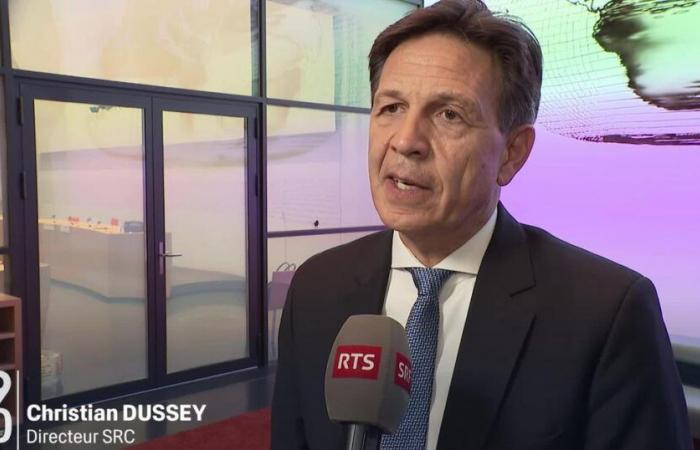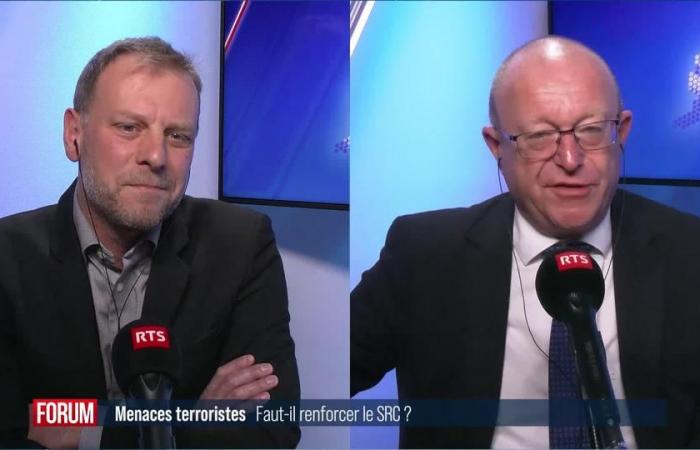As the global and Swiss security environment deteriorates, increased cooperation between China, Russia, Iran and North Korea is one of the most worrying strategic developments, according to the Federal Intelligence Service. The terrorist threat is also on the rise.
“Driven by a desire to restrict the influence of the United States, China, Russia, Iran and North Korea are fighting against Western conceptions of the world order,” writes the Federal Intelligence Service ( SRC) in its report “The Security of Switzerland 2024”, published Tuesday.
And to note that the world is in a “period of dangerous and unstable transition” which will lead to a rearrangement of power relations. This global power struggle as well as the war against Ukraine have aggravated the hybrid threat, including for Switzerland.
Russia is the main worry
The Confederation finds itself particularly exposed to Russian influence activities but also to Moscow’s attempts to circumvent sanctions through private companies in third states. Swiss control of exports of dual-use goods subject to authorization thus constitutes a major challenge, notes the SRC.
Russian intelligence services also constitute the main threat to Switzerland in terms of espionage, an area where the threat remains high. Chinese spies also pose a risk.
Many intelligence services around the world have clandestine branches in Switzerland, which are operated within diplomatic representations, specifies the SRC.
>> Antoine Silacci’s explanations in 7:30 p.m.:
The growing terrorist threat
The service headed by Christian Dussey also notes that the terrorist threat in Switzerland remains high and has even increased in 2024. Since the start of the year, the SRC has recorded an intensifying dynamic among jihadist actors at the international.
In Switzerland, the threat is mainly caused by isolated individuals, inspired by jihadism. In this area, the SRC notes an increase in the radicalization of minors, which occurs online in a short time. It can lead to the carrying out of a terrorist attack.
As social networks are easily accessible to minors, Tiktok, Instagram and Telegram as well as Salafist preachers active online play a central role in the radicalization process, explains the SRC.
According to Christian Dussey, these are profiles that are difficult to detect, as he explains on Forum. “We made eleven arrests of minors this year, which is considerable.” To get there, it required cooperation between many actors, “whether in schools, social services or sports organizations.” Before adding: “And from this perspective, the intelligence service is the last line of defense.”
Christian Dussey also points to the quantity and quality of technological instruments used by criminals. It is a complicated challenge according to him as the criminals are always one step ahead. “If I take hackers, terrorists or spy services from authoritarian countries, there are no legal limits like there are with us. And this ability to integrate this technological development into their operations is much faster than ours. The gap is becoming ever greater and this will have to be taken seriously into consideration.”
The threat from violent right- and left-wing extremism has stabilized at a high level in Switzerland. Jewish and Israeli interests remain exposed.
Insufficient SRC staff?
The SRC staff increased by 100 positions between 2019 and 2023. But Christian Dussey once again pleaded for a strengthening of his service, which is the smallest in Europe and whose size is slightly smaller than that of the Lausanne police.
“We have a very small service compared to the scale of the tasks it must face,” UDC national advisor Jean-Luc Addor, member of the security policy committee, agrees in Forum. “For years, this service has been understaffed,” continues the Valaisan. Not to mention that this service is undergoing transformation. “It is therefore important to know exactly what the additional staff could be committed to.”
Rarely, the Green national councilor Fabien Fivaz, also a member of the security policy committee, says he agrees with his UDC colleague. “The problem is that the service has demonstrated its inability in recent years to manage these additional resources. It has been singled out on several occasions by the supervisory authorities. Where I agree with my colleague is that if we want to increase the personnel as well as the staffing of this service, it must prove to us that these means will truly be used for security.”
But if the Neuchâtel resident pleads for an increase in staff, he insists on the fact that the budget and positions must be taken elsewhere: in the Department of Defense. “This is a department which is today not at all or almost not at all affected by the Confederation’s savings measures, while all other services are,” underlines Fabien Fivaz .
And on this point, the two national advisors do not agree. Because for Jean-Luc Addor, “it is unhealthy to pit the intelligence service against the army”. “We need both,” he argues, emphasizing that it is a traditional strategy of the left to try to weaken the army.
>> The debate between Jean-Luc Addor and Fabien Fivaz in Forum:
ats/ther







